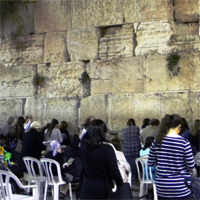Let’s engage for a moment in what is sure to seem like a hopelessly pedantic exercise.
What does a person mean when he or she says, “I believe in god”?
Might not be an affirmation of confidence in god’s existence, at all. When Adrian says, “I believe in you, Rocky,” she’s not affirming her confidence that the boxer exists, but her confidence that he can give Apollo a concussion. Rocky’s existence is a given.
So, “I believe in god” could merely be an expression of confidence that a divine superbeing, who certainly exists, no question about that, can give Apollo a concussion.
What about “I don’t believe in god”?
In a similar fashion, this could merely be an affirmation of a lack of confidence that the unquestionably existing god can or will give Apollo a concussion.
But, of course, “I believe in god” could, indeed, mean “I have confidence that god exists”, just as “I don’t believe in god” can simply be a denial that god exists.
It seems that a person is allowed to say one or the other. A person believes in god, or doesn’t believe in god. A person who is agnostic would prefer not to be bothered by the argument, and, so, does not affirm either position.
What would we do with a person who affirms both?
If a person says, “I believe in god,” does reason forbid the same person from also saying, “I don’t believe in god”?
On the one hand, the person might be mixing assertions. The person might, first, be affirming a confidence in god’s existence, but, second, denying a confidence in god’s potency, as in, “Rocky, I know you’re in the ring, but you can’t win.”
On the other hand, what if a person affirms and denies god’s existence? Can Adrian say, “Rocky, I believe you exist, but I don’t believe you exist”?
This is something like the problem that literary studies believes exists with characters like Rocky. According to some very positivist judgments, we have to call the statement “Rocky exists” a lie. But since we wouldn’t be able to speak about Rocky if he didn’t exist at all, the assertion “saying that Rocky exists is a lie” itself affirms Rocky’s existence, and gives us a paradox with which philosophers have been wrestling for centuries. We have good reason to say both that Rocky does and does not exist.
Adrian has the advantage that her judgment of Rocky’s existence is conditioned by the fact that, because she is also a fictional character, she doesn’t exist either.
The existing person—the person who cogitoes, and, therefore, sums—might not have the same excuse when affirming or denying god’s existence. (We can’t be too certain, of course, since it’s possible that existing people don’t, in fact, exist, no matter how much they seem to cogito.)
But Upanishads aside, does ‘belief’ mean that ‘disbelief’ is impossible, or, at the very least, uselessly unreasonable?
Quite the contrary. If a person fidgeting in the kitchen says to himself, or to anyone in earshot, “I believe the cake is done”, we bystanders cannot insist that the anxious baker has exclusive confidence in the cake’s done-ness. The baker who believes the cake is done knows very well that all the possibilities at the moment include a cake that is very much not done. The baker’s expression of ‘belief’ here is a hopeful confrontation of all realities.
At this point, one might object that the baker certainly knows that something exists in the oven. I would point out two things. The baker who has put something in the oven will not say, “I believe something exists in the oven”, except under the conditions that uncertainty has entered the situation. Perhaps the baker can’t remember putting something in the oven. More importantly, what the baker puts in the oven is not a cake, but her own best efforts to bring a cake into existence.
Once he gets the cake out and cuts it apart, the baker reduces all the possibilities to one. And, at that point, belief is beside the point. Believing in the existence of what is makes no sense at all. What isn’t draws belief. In the tense unknowing while the door is closed, in the moment in which only our best efforts can be said to exist, belief and all its disbelieving own reality.
What would I mean if I said something like, “I believe there is life on one of Jupiter’s moons”?
A person who believes surely knows what all the possibilities of the moment include, and her belief stares at the door, behind which lie her best efforts, and hopes for everything that very well may not be.
Belief is for the dis-believers. For those who refuse disbelief, who deny all doubt and avow themselves of certainty, there is parochialism, fundamentalism, and schizophrenia. But for the skeptics, those who thrill in living’s rife possibilities, there is belief.
So, me:
I believe in god. I don’t believe in god. Positively.











